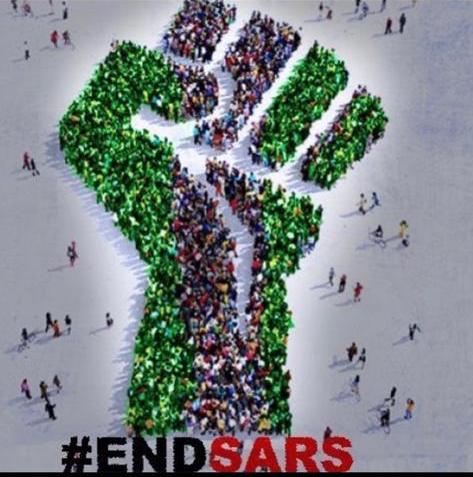EndSARS: More than a PR disaster
As the prevalence of police brutality and harassment continued to rise, a group of youths, especially in the southern reaches of the country and Abuja chose to take a valiant stand. Though they dared to hope for change, even the most unwavering of their ranks could not have foreseen the consequences of their protests – […]

As the prevalence of police brutality and harassment continued to rise, a group of youths, especially in the southern reaches of the country and Abuja chose to take a valiant stand. Though they dared to hope for change, even the most unwavering of their ranks could not have foreseen the consequences of their protests – not least the powerful political impact that would follow. At its inception, the movement manifested as a mere murmur on social media, with tales of victims and their advocates permeating the collective consciousness and fanning the flames of a nation tired of the government’s perceived indifference.
But the storm that gathered towards the end of 2020, pushing the country towards chaos, and the government gasping for order, could have been calmed if a promise to overhaul the Special Anti-Robbery Squad—the controversial rogue unit of the police at the centre of the mass outrage—had been kept. In the aftermath, I cannot help but wonder what musings must occupy the mind of Vice President Osinbajo, in the face of the palpable erosion of public trust that proved to be the proverbial last straw.
In his capacity as Acting President in 2018, Osinbajo intervened in the sustained protests that erupted over the dehumanisation of young Nigerians who were maliciously profiled and targeted. With decisive action, he directed the Inspector General of Police, Ibrahim Idris, to conduct a comprehensive review of the operations of SARS, which had been implicated in the controversial incidents and unmasked as a civilian-targeting death squad.
In a statement released by his spokesman, Laolu Akande, the vice president made a clear promise that any new police unit to emerge from the reform process would be intelligence-driven and focused solely on the prevention and detection of armed robbery and kidnapping, as well as the apprehension of those found to be involved in such crimes.
This assurance serves as a reminder of Osinbajo’s commitment to restoring public confidence in the country’s law enforcement agencies and ensuring that they operate in a manner that is just, equitable, and responsive to the needs of the people.
Unfortunately, two years after this, the same people he had asked to see reason and believe in a Nigeria without SARS were provoked to converge on Lagos and Abuja, this time angrier, and as their stories trended, so did politics and propaganda set in to promote and derail the crowds. But what couldn’t be whitewashed amidst the chaos was the certainty of the impunity with which the human rights of the subjects of those outrages were erased.
The EndSARS protests were not an isolated event. They were the culmination of a long-standing frustration among Nigerians who have been met with condescension and apathy from the government when attempting to air their grievances. This persistent disregard for the legitimate concerns of even the most sincere and well-intentioned citizens can be attributed, in part, to the short attention span of social advocates in the country, which successive governments had exploited over the decades to make promises that are soon forgotten or disregarded. EndSARS lingered as though to remind the government the people would no longer be silenced.
In previous protests, the youth had called for the disbandment of SARS. However, in 2020, with the police cracking down on demonstrations, their demands expanded to encompass a range of urgent issues. These included the immediate release of arrested protesters, justice for all victims of police brutality who had lost their lives, and appropriate compensation for their grieving families. Additionally, the movement called for the establishment of an independent body tasked with overseeing investigations into reports of police misconduct within a mere 10-day timeframe. They also demanded that disbanded SARS operatives undergo psychological evaluations, and that the remuneration and welfare packages for police officers be improved.
While some didn’t join the EndSARS protests with the aim of weaponising the cause for a political objective, it served as a springboard for previously apolitical youths to partake in the election and, after the presidential elections a few weeks ago, the government official who had dismissed the protests as a PR disaster agreed that the protests came with an unexpected electoral consequence.
But the mutually-dispensed disinformation warfare that characterized the EndSARS campaign remains, after the preventable killings and destructions of properties, the second most unfortunate dimension of the episode. When it began, it was framed as a southern agenda against the Buhari government and this was cited by the northerners who rose against the protests, describing it as a sectional insurrection.
The polarisation and disregard for truth in Lagos are particularly concerning. Even this week, I encountered a false claim online that Governor Babajide Sanwo-Olu authorised the shooting at Lekki Tollgate. While it is patently absurd to suggest that a governor could command the military to commit murder, it is troubling that such a claim gained traction. Sanwo-Olu, like other officials associated with President Buhari or the APC, has been unfairly tarred by association with those in power in Abuja, and does not wield the kind of authority to order such atrocities. Ultimately, it is only President Buhari who has the power to make such decisions.
